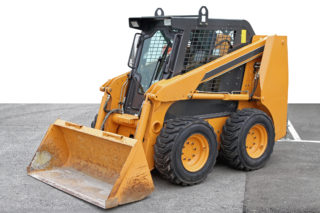Equipment Manufacturers: Beware of the Rental Yard Customer When Safety Features Are Optional

Fasolas v. Bobcat of New York Appellate Division (April 1, 2017)
A typical argument made by the plaintiffs and their experts in a design defect/ product liability case is that “Safety should never be an option.” Over the years, however, New York courts have recognized that optional safety features are perfectly appropriate under the right circumstances. If a safety feature is disadvantageous under certain conditions of use and the product can be safely used without it under those conditions, the courts have sometimes ruled that the purchaser is in a better position than the manufacturer to decide whether the safety feature is appropriate for the purchaser’s specific uses − even where the end user/injured party is not necessarily the purchaser. In cases where the purchaser is the end user’s employer, it has been held that the purchaser, as opposed to the manufacturer, was in a better position to decide whether the safety feature was appropriate for the employee’s uses. The leading example is Scarangella v. Thomas Built Buses, Inc., 717 N.E.2d 679 (NY 1999).
The Scarangella court articulated three requirements in holding that the product was not defective in design even though it had an optional safety feature: (1) the buyer is knowledgeable regarding the product and is aware that the safety feature is available; (2) there exist normal circumstances of use in which the product is not unreasonably dangerous without the optional feature; and (3) the buyer is in a position to balance the risks and benefits of not having the safety feature for the buyer’s specific uses.
But what happens if “the purchaser” is not the employer, but is instead a renter of heavy equipment, and the end users are not the purchaser’s employees, but rather customers of the rental yard over whom the rental yard has no control? Fasolas v. Bobcat of New York, Inc., decided by the Appellate Division, Second Department, on April 12, 2017, addressed that question. Plaintiff’s decedent, Elias Fasolas, had rented a skid steer loader with a bucket attachment from a rental yard and used it to try to knock down a nine-foot tree. The tree entered the open operator’s cab and crushed Fasolas, killing him.
The manufacturer of the skid steer loader offered as an option a “special applications kit” designed to prevent objects from intruding into the cab. It consisted of top and rear windows and a half-inch thick Lexan™ plastic door. Plaintiff’s expert opined at trial that every unit sold to a rental yard should have the “special applications kit” as standard equipment because of its minimal cost and the known danger of objects penetrating the cab. The defendant manufacturer offered testimony, however, that the “special applications kit” makes ingress and egress more difficult and reduces visibility. The manufacturer also testified that the bucket attachment used by the decedent was for applications involving digging, carrying and dumping loose materials that did not pose an intrusion hazard, whereas use with a brush saw or a hydraulic breaker did require the “special applications kit.”
The manufacturer appealed from the denial of its motion for a directed verdict at the close of plaintiff’s case and the denial of its motion to set aside the verdict. The Appellate Division, distinguishing Scarangella, affirmed the verdict against the manufacturer, stating: “We hold that the Scarangella exception is not applicable where, as here, the product is sold to a rental company.” The primary rationale was that whereas in Scarangella, the end users were the employer/purchaser’s employees who were bus drivers and would be knowledgeable about back-up alarms and the hazards of driving in reverse, the end users of the skid steer loader were “the general public,” who presumably would not know about the use of the “special applications kit” and the hazards of operating without one during certain applications.
Several aspects of the court’s analysis are troubling. First, by impairing ingress and egress, the “special applications kit” could pose a safety risk to the operator in the event of a rollover; by reducing visibility, it could pose a safety risk to bystanders who might not be seen by the operator. Making this feature standard equipment for all applications could actually reduce safety in certain situations. Second, whether the unit is purchased or rented does not change the fact that the end user knows more about his or her specific uses than the manufacturer. The absence of windows and a door and the possibility of intrusion into the operator’s compartment is “open and obvious” to even a casual user. The court characterized the renters of the equipment as “the general public,” but the skid steer loader is by no means a consumer product, and it is unrealistic to think it would be rented by someone who does not have any experience whatsoever in operating such equipment.
Rather than issuing a far-reaching holding that the Scarangella exception is inapplicable whenever the purchaser is a rental yard, there is a narrower and fairer rule. Where the end user is a rental customer who has sufficient knowledge − whether through the manufacturer’s on-product warnings and product literature or otherwise − to adequately weigh the risks and benefits of the optional safety feature for his or her own specific uses, the Scarangella exception still applies.
This blog post was published originally on June 27, 2017.


 By
By




